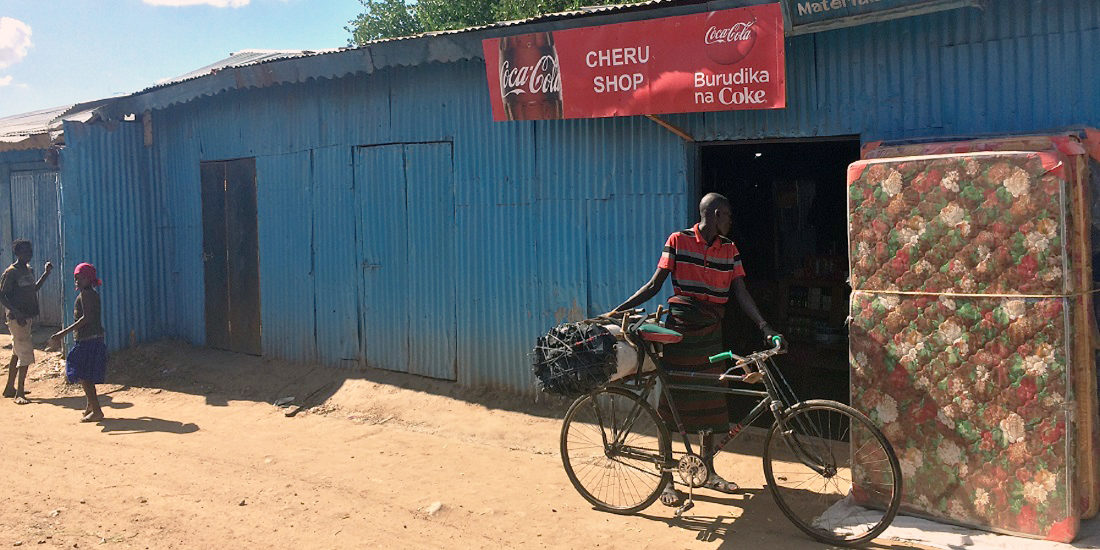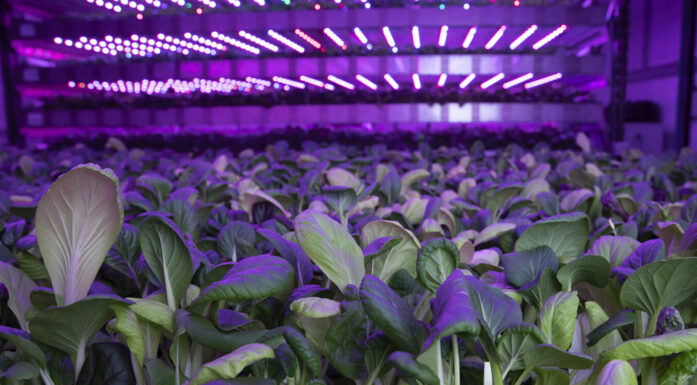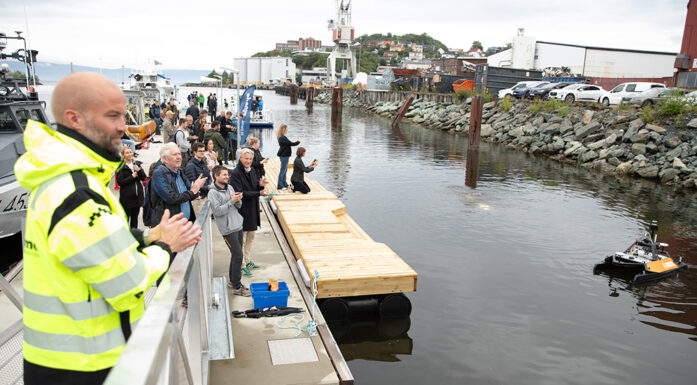Norwegian-Kenyan cooperation will create jobs for refugees
Companies in a refugee camp in Kenya don’t function the same way they do in Norway. But Norwegian advisors are still in a position to help.
About 180,000 residents live in the Kakuma refugee camp in northwestern Kenya. That number is increasing monthly due to unrest in neighbouring countries.
Three representatives from ENgage travelled to Kakuma in November to see if they could help launch relevant businesses in the refugee camp. (See fact box.) This is part of a program that the Norwegian Refugee Council has initiated.
ENgage, or Centre for Engaged Education through Entrepreneurship, has specialists who support start-up businesses with a method that may also be applicable in the refugee camp setting.
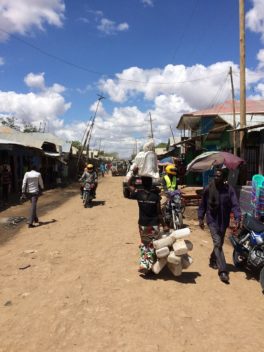
The conditions for running a business in these parts of Kenya differ significantly from Norwegian conditions. Collaborating with locals is therefore absolutely essential. Photo: Even Haug Larsen, NTNU
Collaboration
“We help people where they are. We want to help them create something by teaching them a method of finding a market,” says Even Haug Larsen. He is Coordinator for the NTNU School of Entrepreneurship, which is affiliated with the ENgage consortium.
However, the method can’t just be transferred directly and is only a starting point. It has to be adapted to work for the economy of a refugee camp in East Africa.
“We collaborate with the University of Nairobi School of Business. This cooperation is absolutely essential,” Haug Larsen says.
He has experience in developing products that are tailored to local needs, and knows that collaboration with locals is necessary in order to succeed.
“We’ve visited refugee camps twice before. Our next visit will be the third one in under a year. Now we’ve completed the analysis and identified the need. The next step will be to adapt and execute the plan,” says Haug Larsen.
Camps become like cities
Since many people live in refugee camps for several years, the camps become somewhat like cities. Residents of refugee camps are sometimes better off than local residents in the surrounding area. This particular camp falls under the auspices of the UN, and residents receive food, water, tents and access to education.
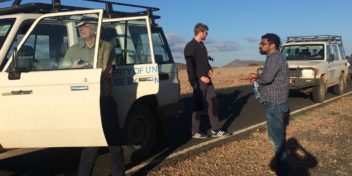
An earlier NTNU visit in Kenya. From left: Hans Skotte, Anders Gunleiksrud (behind the car) and Vivek Sinha. Photo: Even Haug Larsen, NTNU
A large camp also develops its own economy. This is where ENgage enters the picture.
“Instead of uncritically spending money on the camp, we need to stimulate the economy,” said Haug Larsen.
Running a camp costs money, so of course it’s a big advantage if you can help people in the camps to create something themselves. Camp residents can be a resource. And the market already exists.
Little suggests that the need for the Kakuma camp will decrease in the near future. The market is stable, and actually growing. Kenyan authorities have decided to close the even bigger refugee camp in Dadaab in the eastern part of the country, and several of those residents were moved to the camp in Kakuma.
Identifying the market
The ENgage method seems kind of self-evident. You have to find a market before starting a business. A camp needs hairdressers, carpenters and mechanics, but eventually a market can become saturated.
ENgage
- ENgage – Centre for Engaged Education through Entrepreneurship – is a centre for outstanding education.
- The centre will develop education for students who want to challenge accepted truths and create something new and better in the private and public sectors. ENgage interprets entrepreneurship in a broader sense than just starting new businesses. ENgage will develop change agents: citizens who can address complex challenges in our modern world through an entrepreneurial mindset. (Source: NOKUT)
- ENgage is a consortium of Nord University Business School, NTNU’s School of Entrepreneurship, NTNU Experts in Team, TrollLABS and Spark NTNU.
In short, the method is based on finding new markets by talking to potential customers and listening to their needs. In this way you can also identify what you should focus on. Shouldn’t all entrepreneurs do that? Maybe. But this doesn’t always happen in practice.
“We need to spend time identifying the problems that people in the camp have,” says Haug Larsen. “We need to extract the essence of that from people we talk to. What exactly is their need?”
The camp has its own school for people who are learning a trade or who have the right combination of courage and skills to start their own business activities. The best candidates from this program may receive an offer to apply the ENgage method.
One resident of Kakuma has already become a millionaire through building up his own business, and has become a model for others. One person’s progress can thus become someone else’s way forward, too.
The goal is for the economy throughout the camp to be lifted up by potential entrepreneurs creating jobs and further opportunities.
NTNU’s rector’s staff are co-financing the work, and local businesses are also collaborating.
Even Haug Larsen can answer questions or provide more information.
